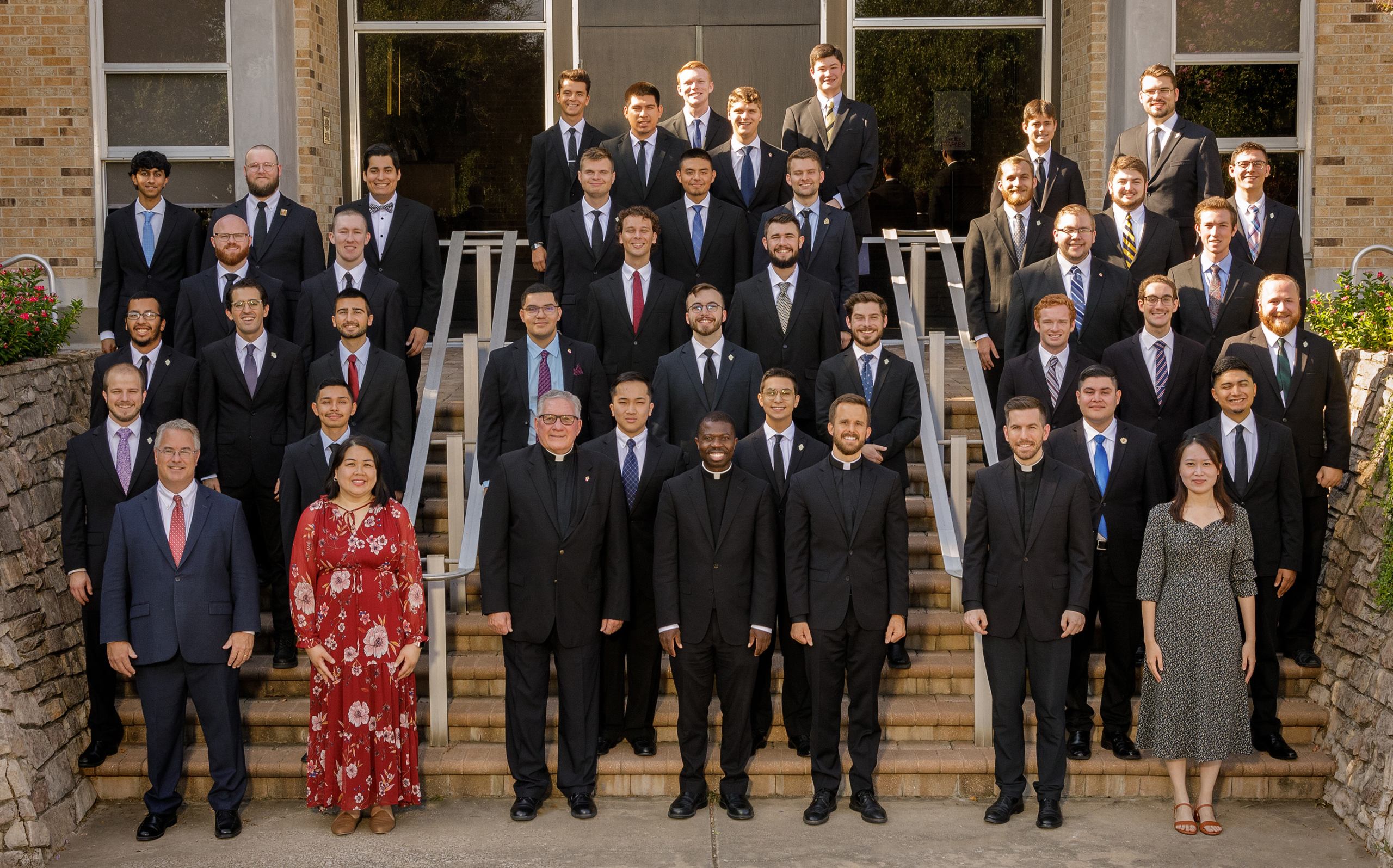Discipleship Formation Overview
The sixth edition of the Program of Priestly Formation (PPF) issued by the United States Conference of Catholic Bishops (USCCB) states:
Priestly formation…is a continuation in the Church of the apostolic community gathered about Jesus in which men called to share in a unique way in the priesthood of Jesus Christ relive today the formation offered to the Twelve by the Lord [149]. The seminary’s life in the community mirrors ecclesial communion, which itself is rooted in the Blessed Trinity. This ecclesiology of communion lived out in seminary community is decisive for understanding the identity of the priest, his essential dignity, and his vocation and mission among the People of God and in the world [150].
The statement further explains:
The essential work of the seminary takes place in the context of community. Personal growth and character development should progress together harmoniously within a deepening spiritual life. Community life can help overcome difficulties caused by excessive individualism. The seminary is a school of human virtue, of growth in honesty, integrity, intellectual rigor, hard work, and tolerance, where the common good is built with solidarity and discipline – all leavened by humor and healthy enjoyment. The seminary also must be a school of spiritual growth in which seminarians are formed into men of prayer, imbued with those virtues that only grace can bring: faith, hope, and charity. The seminary should help seminarians develop the relationship and dialogue skills necessary for healthy interpersonal relationships as priests” [150].
Relying on the grace of the Holy Spirit, the faculty and support staff of Holy Trinity Seminary are committed to creating and nurturing a seminary in accord with this vision of the PPF and to accomplish their mission of priestly formation of seminarians at the college and pre-theology stages of formation.
HUMAN
FORMATION
SPIRITUAL FORMATION
INTELLECTUAL FORMATION
PASTORAL FORMATION


